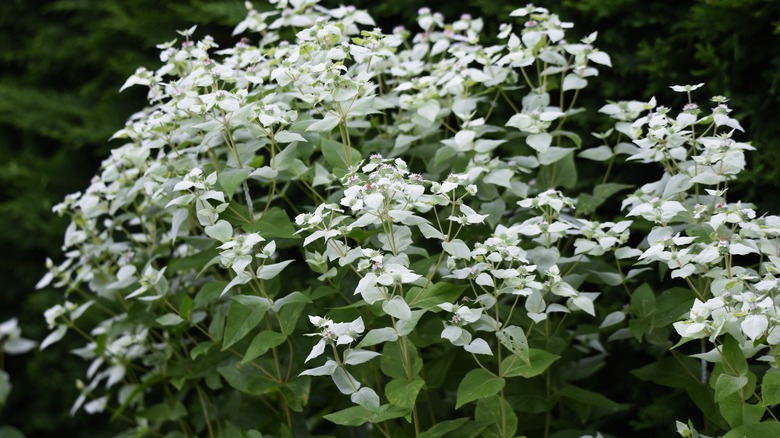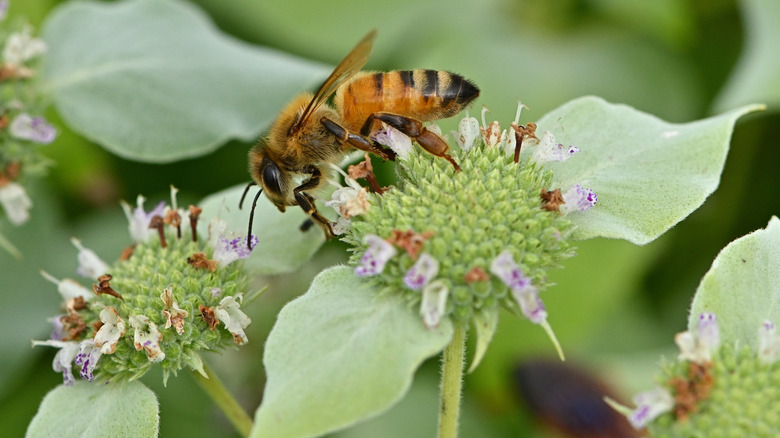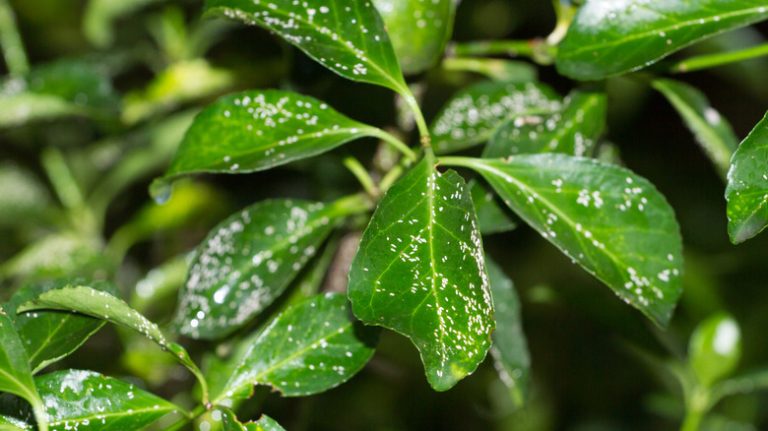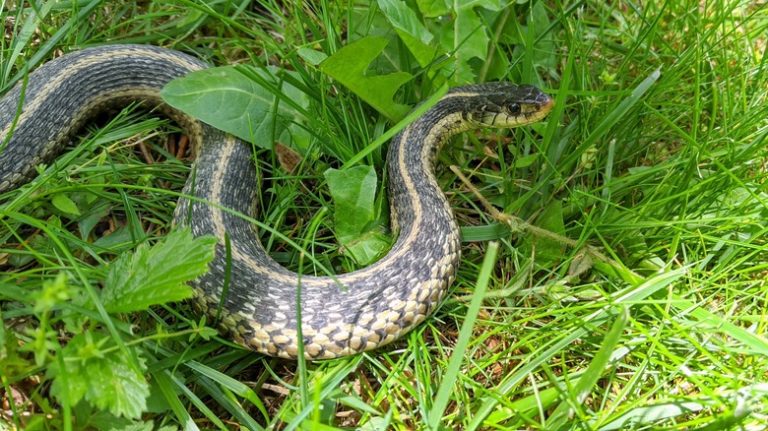We need pollinators to survive, considering most of the plants we consume require these beneficial insects to produce fruit. Without them, what are we supposed to eat? Your backyard garden won’t be productive without critters buzzing by and moving pollen around. You can make sure they’re attracted to your garden by planting a variety of flowers, but adding short-toothed mountain mint (Pycnanthemum muticum) is a sure-fire way to lure bees and butterflies onto your property.
Pycnanthemum is a mint family that’s native to North America. They have a spearmint-like scent when you crush the leaves and look gorgeous when they develop their pinkish-white flowers. Even when the plant isn’t blooming, the pointed oval leaves are attractive and make a nice container plant. This mint variety is known by many names including blunt mountain mint, clustered mountain mint, and broadleaf mountain mint. No matter what you call it, it’s now going to be known as the plant that brings all the pollinators to your garden.
Mountain mint is a treat for pollinators

Pollinators feed on plant nectar and happen to pollinate our plants by accident, as they transfer pollen from one plant to another after brushing up against it. So, you need to make sure you have that sweet nectar flowing throughout your garden to attract butterflies and bees. When mountain mint blooms from July to September, each stem has tons of tiny flowers that produce nectar that the pollinators love. It attracts all sorts of critters including butterflies, bees, ladybugs, moths, beetles, flies, and parasitoid wasps, which are the good ones.
What makes this plant so special? It may seem like any other mint variety, but pollinators can’t get enough of it. The Pennsylvania State University planted 86 species of native plants and studied them to determine which plants were good for pollinators. The trial ran from 2024 to 2024, with data collected weekly. It was determined that Pycnanthemum muticum was the most attractive to pollinators each year and attracted the most diverse group of pollinators. The Pennsylvania State University trial report notes that the large number of small flowers that bloom for a long time could be responsible for the diversity and large number of insects. Whatever the reason may be, this plant is sure to bring pollinators to your garden.
Keep mountain mint and pollinators happy

You’ll need to keep the plant happy before you can keep the pollinators happy. Mountain mint thrives in USDA zones 4 to 8 with moist soil and full sun. It’s not as drought-tolerant as other members of the Pycnanthemum genus, so keep this one well-watered. It spreads underground via rhizomes, and while you should usually plant mint in containers because of their invasive tendencies, mountain mint isn’t nearly as hard to contain as Mentha.
Once the pollinators arrive, you can keep them around by planting a variety of flowering plants that bloom throughout the year. Aim for heirloom plants since hybrid flowers don’t usually have nectar and pollen, and avoid using pesticides. Further, besides producing a beautiful garden, pollinators are also beneficial because they feast on pests. Aphids feed hoverflies and ladybugs. Parasitoid wasps also eat aphids as well as beetles, thrips, and caterpillars, among others. Predatory pollinators can help keep pest populations down while also pollinating your plants, so it’s good to attract a variety of insects so your garden can take advantage of the benefits.



